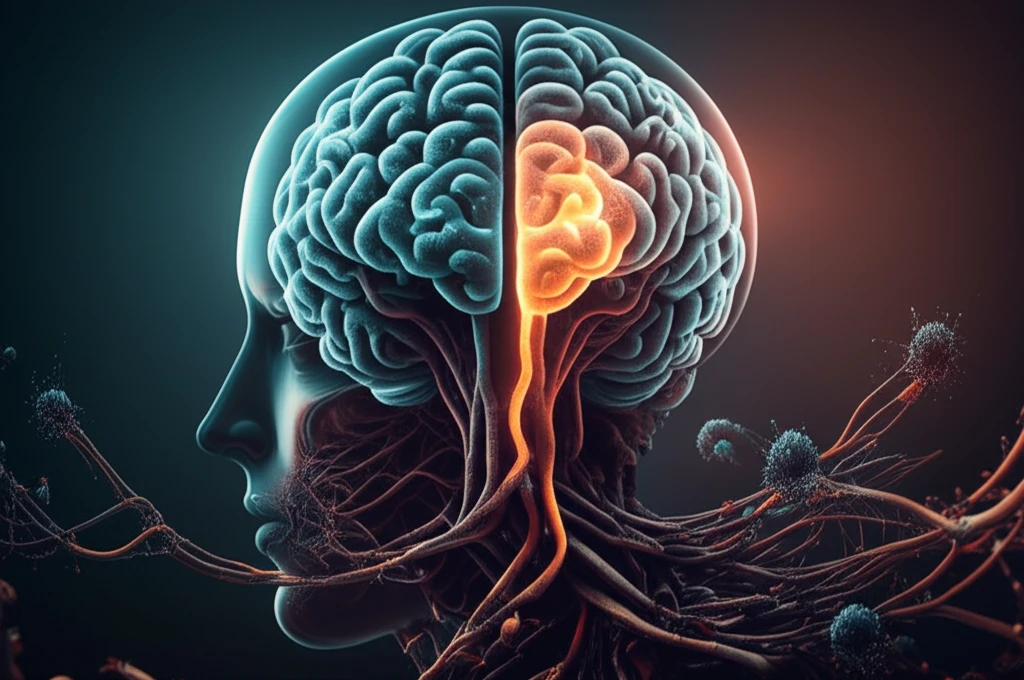
Understanding the Link Between Hepatitis C Treatment and Depression: What You Need to Know
"Exploring how interferon-alpha affects tryptophan metabolism and its potential role in depression among HCV patients."
Dealing with hepatitis C (HCV) is tough enough, but for many, the treatment itself can bring unexpected challenges, particularly concerning mental health. Interferon-alpha, a key medication in HCV therapy, is known to cause a range of side effects, with depression being a significant one. It's not just a matter of feeling down; for some individuals, it can severely impact their quality of life and even the success of their treatment.
The connection between interferon-alpha and depression isn't random. It appears that this medication can disrupt the delicate balance of certain chemicals in the brain, most notably those related to tryptophan metabolism. Tryptophan is an essential amino acid that plays a crucial role in producing serotonin, a neurotransmitter often called the 'happiness hormone.' When interferon-alpha interferes with this process, it can potentially trigger depressive symptoms.
A recent study published in the Journal of Infectious Diseases and Therapy sheds light on this complex relationship. Researchers investigated how disturbances in tryptophan metabolism might increase the risk of depression in HCV patients undergoing interferon-alpha treatment. By understanding these mechanisms, we can pave the way for more personalized and effective strategies to support patients' mental well-being during their HCV journey.
How Does Interferon-Alpha Affect Tryptophan and Lead to Depression?

The study highlights the role of indoleamine 2,3-dioxygenase (IDO), an enzyme activated by interferon-alpha. IDO is responsible for breaking down tryptophan, diverting it away from serotonin production and towards the kynurenine pathway. This shift can lead to reduced serotonin levels, a key factor in the development of depression. Imagine tryptophan as a resource that can either build up happiness (serotonin) or go down another path (kynurenine). When interferon-alpha revs up IDO, it's like diverting more of that resource away from happiness.
- IDO Activation: Interferon-alpha activates IDO, reducing serotonin.
- Kynurenine Pathway: Tryptophan gets diverted to kynurenine production.
- Genetic Predisposition: IFNG (+874) gene variants increase depression risk.
What Does This Mean for HCV Patients and Future Research?
This research provides valuable insights into the intricate relationship between HCV treatment, tryptophan metabolism, and mental health. It highlights the importance of monitoring patients for signs of depression during interferon-alpha therapy and considering individual risk factors, such as genetic predispositions and pre-existing mental health conditions. Further studies are needed to explore the underlying causes of elevated serum tryptophan and to develop targeted interventions to support serotonin production and prevent depression in HCV patients. By understanding these mechanisms, we can work towards making HCV treatment more manageable and improve the overall well-being of those undergoing therapy.
